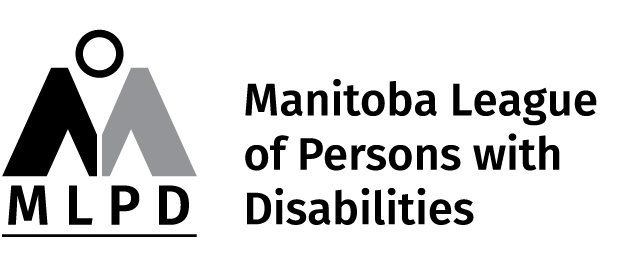An interview with Breanne Boyce about Advocating for Accessibility
This article is part of MLPD’s three-year project with Elections Canada. This year, we are raising awareness on the importance of having candidates that are informed on disability issues. For this article, we chatted with Breanne Boyce, someone we have connected with about Transit Plus issues, where the local representative was informed and involved.
Breanne has been organizing tenants recently at the apartment complex they live in, to settle a dispute with Winnipeg Transit Plus over the pickup location at their apartment complex. A Winnipeger born and raised, who works for the Crisis and Trauma Resource Institute, Breanne lost vision in 2018 leaving only partial function in the left eye. Even before it was Breanne’s paid job to do so, Breanne had been advocating with people to help them find mental health resources. Breanne’s educational background includes degrees in clinical behavioural psychology and conflict resolution, and desire to help people, which has given Breanne a solid foundation to be an advocate.
It is through this advocacy with tenants and Winnipeg Transit Plus that Breanne connected with the Manitoba League of Persons with Disabilities (MLPD). Breanne first connected with Sheryl Peters, a projects manager at MLPD. Breanne recalls Sheryl being warm, supportive, resourceful, and Breanne felt heard. Melissa Graham, MLPD executive director, became involved bringing her advocacy experience and the organization into the discussion with Winnipeg Transit Plus. Throughout the process, Breanne was in contact with local elected representatives and arranged a meeting with Winnipeg Transit Plus officials at their apartment block. The resolution to this issue was in process at the time this article was published.
“Many non-disabled people, including those who operate services and supports for people with disabilities, don’t know what it’s like to have a disability,” Breanne explains. “It’s through speaking up that we can work to get these issues resolved”.
It’s important to connect with elected officials to raise awareness around accessibility issues, as Breanne has learned through this recent advocacy around the Winnipeg Transit Plus issue. “If a community works together and has the backing and support of politicians, the community has more of a voice, and the politicians have the power to change things”. The local MLA, city councillor, and the Ombudsman have shown leadership in working towards a resolution with Winnipeg Transit Plus, Breanne says
“Advocacy work can be mentally exhausting and daunting. There are many barriers and obstacles to get through to make a change. Systems are very bureaucratic and sometimes the left hand doesn’t know what the right hand is doing”. Breanne says that sometimes those in the system don’t understand the impact of changes they are making.
“Remain patient and persistent,” is the advice Breanne gives to people who are doing self-advocacy. Trust your gut and moral instinct. If you know what you’re doing is right, don’t give up”. Breanne encourages others to connect with organizations like MLPD to help.
Breanne wasn’t really into politics, but now thinks it’s important to be involved. Breanne started voting to raise issues that are important to her. Breanne speaks from experience, advising us all to approach political parties and find those willing to help advance issues that you know need change. And to support those parties who spend the time and effort to make a difference.
“There’s power in numbers. Build your advocacy army when it comes to these areas,” Breanne says. “It’s a huge misconception that when it comes to advocacy or voting, one person can’t make a difference”.
If you’re passionate about making change through advocacy but don’t know where to start, Breanne says to connect with people who are fighting similar issues, collaborate, and get your voices heard.
“It takes one person to start a ripple effect when it comes to making change. Then you add more people one by one, and the base gets stronger. Then you can build together and form a coalition of change. And it all starts with one person, so don’t be scared to take that first step”. Because, Breanne says, “in the end it makes the world of a difference, not only for the people facing the challenges now, but also for those who may be impacted in the future. Taking these steps will inspire others to do the same going forward”.
Ultimately, Breanne said it’s important to create communities where people with disabilities can navigate with more independence.
